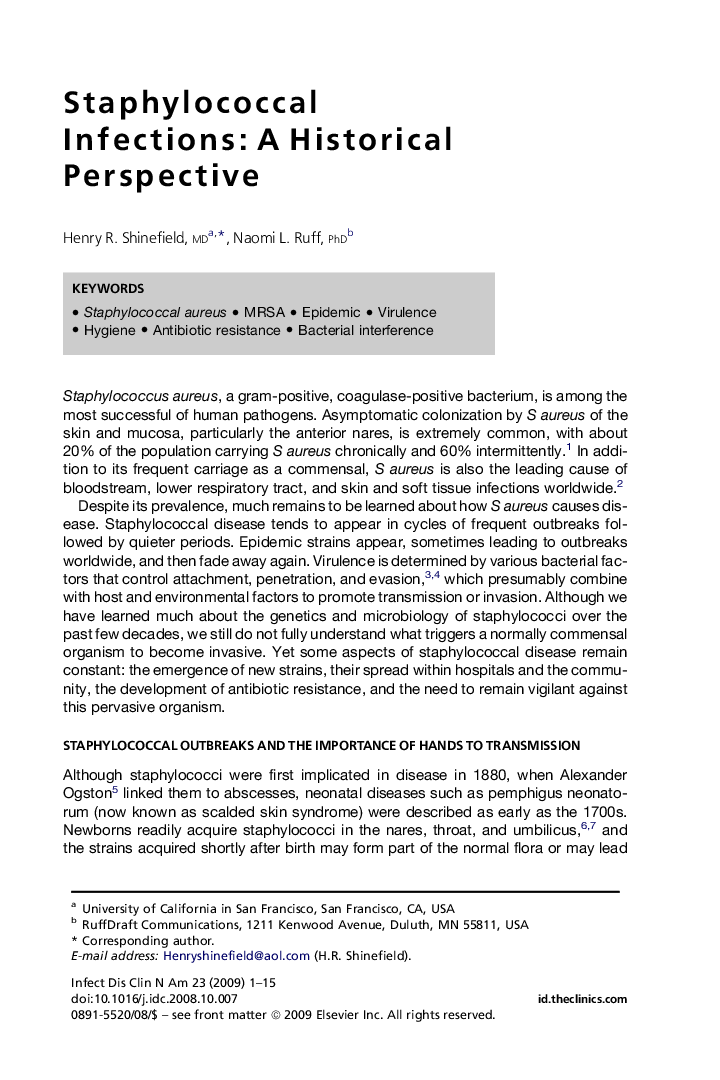| Article ID | Journal | Published Year | Pages | File Type |
|---|---|---|---|---|
| 3404566 | Infectious Disease Clinics of North America | 2009 | 15 Pages |
Abstract
Staphylococcus aureus is an unusually successful and adaptive human pathogen that can cause epidemics of invasive disease despite its frequent carriage as a commensal. Over the past 100 years and more, S aureus has caused cycles of outbreaks in hospitals and the community and has developed resistance to every antibiotic used against it, yet the exact mechanisms leading to epidemics of virulent disease are not fully understood. Approaches such as bacterial interference have been effective in interrupting outbreaks, but to better prevent staphylococcal disease, we will need to be vigilant about environmental factors that facilitate its spread. Even more importantly, we need to understand more about the mechanisms that lead to its virulence and transmission. With such information, it may be possible to develop a vaccine that will prevent endemic and epidemic staphylococcal disease.
Related Topics
Health Sciences
Medicine and Dentistry
Infectious Diseases
Authors
Henry R. MD, Naomi L. PhD,
